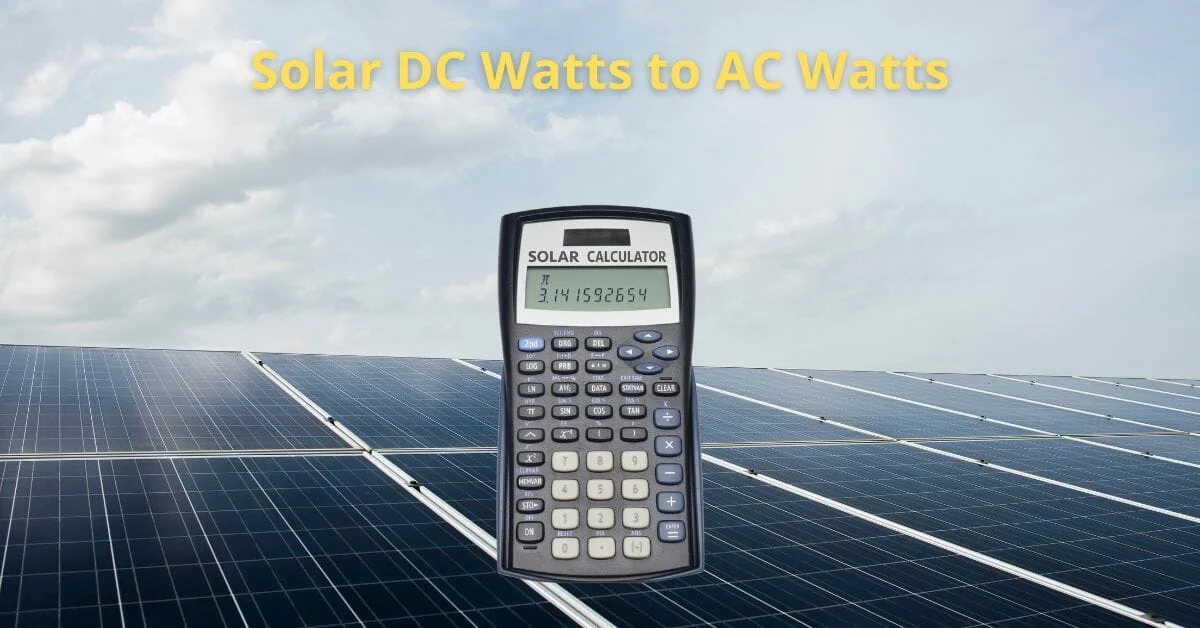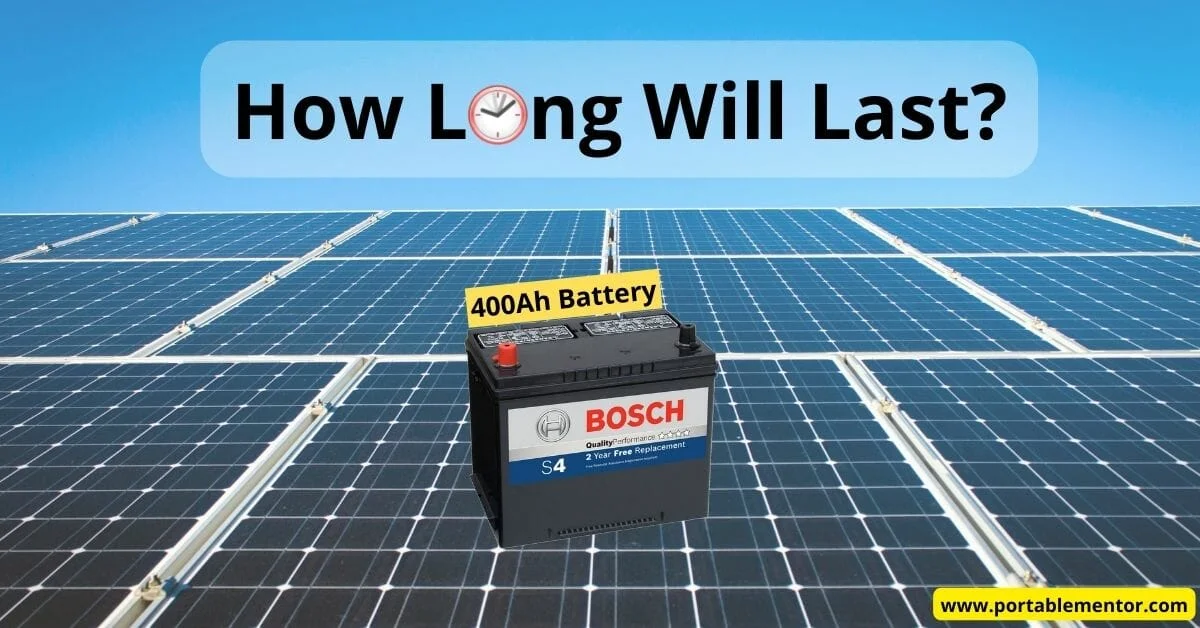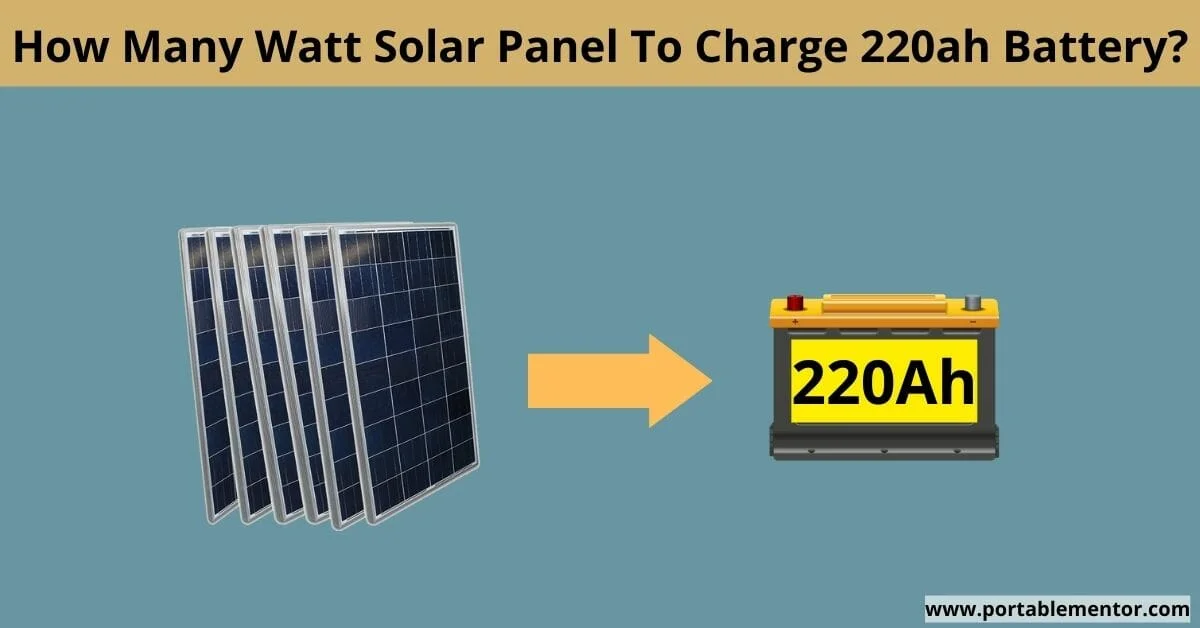To determine how long will a 12v battery last with a 500W inverter, we need to consider several factors:
- Battery capacity
- Battery type
- Inverter efficiency
- Total load
Let's break down the calculation process step by step:
How to Calculate Battery Runtime with a 500W Inverter?
Step 1: Multiply battery Ah by its voltage
Deep cycle batteries, designed to provide a sustained amount of power over an extended period, come in various capacities, typically ranging from 5Ah to 200Ah.
Battery capacity is measured in amp-hours (Ah), whereas AC appliances or inverters are measured in watts. To align these units, we need to convert amp-hours (Ah) to watt-hours (Wh). Formula:
Battery capacity in watts = Battery Ah × Battery Volts
For example, let's consider a 100Ah battery:
100Ah × 12V = 1200Wh
Step 2: Consider Battery Type and Its Impact on Runtime
The three most common types of 12V batteries are lead-acid, AGM, and lithium-ion batteries. Each battery type has a different depth of discharge (DOD) limit, which directly affects its runtime.
Lead-acid and AGM batteries have a DOD limit of 50%. It means that you can safely discharge them up to 50% of their capacity. Discharging them beyond this limit may negatively impact their lifespan. On the other hand, lithium-ion batteries can be discharged up to 100%.
Also, lead acid batteries are less efficient when discharging than lithium batteries. Based on directscience.com data:
- Lead-acid batteries: Discharge efficiency ≈ 80-85%
- Lithium-ion batteries: Discharge efficiency ≈ 90-95%
Let's compare different types of 12v 100ah batteries and their usable capacity in watt-hours after considering their DoD limit and discharge efficiency:
| Battery Type | Usable watt-hours |
|---|---|
| Lead-acid | 500Wh |
| AGM | 500Wh |
| Lithium-ion | 1000Wh |
Step 3: Take into account Inverter Efficiency
Inverters are devices that convert direct current (DC) from batteries into alternating current (AC), which is required by most household appliances. During this conversion process, some power is lost due to the inverter's efficiency.
Typically, inverters have an efficiency rating of around 90%. It means that a 100W AC load would draw approximately 110 DC watts from the battery to function properly.
To calculate the total AC watts provided by your battery, multiply the inverter efficiency by the battery's watt-hour capacity.
For example, let's consider a 12V 100Ah lithium-ion battery:
1000Wh × 0.90 = 900Wh
Step 4: Calculate 12v battery Runtime with a 500W Inverter
When using a 500W inverter, it is generally recommended not to operate it at 80% of its capacity continuously.
Doing so may strain the inverter and potentially shorten its lifespan. Instead, it is advisable to connect an AC load that is within 80% of the inverter's total capacity.
To calculate the estimated runtime, use the following formula:
Formula: Battery AC Watts ÷ Output AC Load = Estimated Runtime
For example, with the previously mentioned 1020 AC watts from the lithium-ion battery, and considering an 80% load capacity:
1020W ÷ 400W = 2.55 hours or approximately 150 minutes
This calculation assumes a 500W inverter running at 80% capacity (400W).
How Long Will a 12v Battery Last With 500w Inverter?
Here's a chart illustrating the estimated backup time for various 12V battery sizes when using a 500W inverter.
| 12V Battery Size | Estimated Backup Time (Lead-acid/AGM - 50% DOD) | Estimated Backup Time (Lithium-ion - 100% DOD) |
|---|---|---|
| 50Ah | 0.6 hours | 1.2 hours |
| 100Ah | 1.2 hours | 2.55 hours |
| 120Ah | 1.5 hours | 3 hours |
| 150Ah | 1.8 hours | 3.7 hours |
| 200Ah | 3 hours | 6 hours |
| 300Ah | 3.6 hours | 7.2 hours |
summary
- 12v battery will last anywhere between 40 minutes to 7 hours running a 500-watt inverter. The exact time will depend on the size and type of yours.
Please note that these calculations are based on operating the inverter at 80% capacity and converting DC watts into AC watts.


